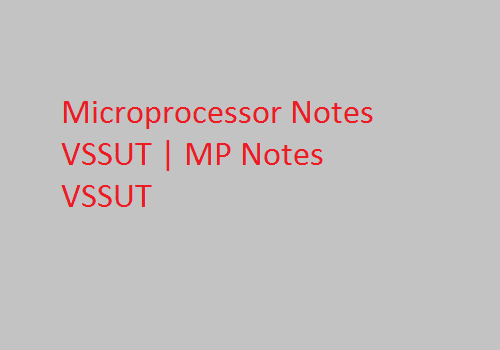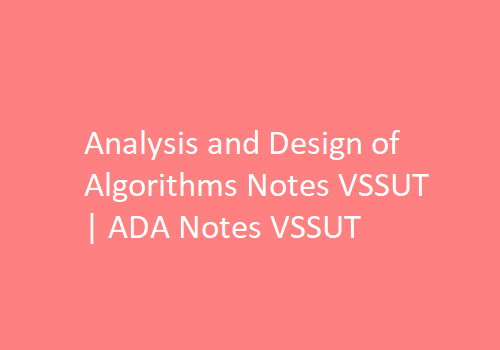CT Notes Pdf – Concrete Technology JNTU download free notes 2025
Here you can download the Free lecture Notes of Concrete Technology Pdf Notes (CT Notes pdf) with multiple file links to download. The Concrete Technology Notes Pdf (CT Notes Pdf) book starts with the topics covering Portland cement, Mineral and chemical admixtures, Classification of aggregate, Factors affecting workability, Water / Cement ratio, Compression tests, Factors in the choice of mix proportions, Light weight aggregates, Workability etc.
Concrete Technology Pdf free download – CT Notes pdf

Overview Concrete Technology Notes Pdf
Welcome to the ultimate guide for Concrete Technology Notes! Whether you are a B Tech student or a professional looking to enhance your knowledge, these notes will provide a comprehensive understanding of concrete technology. Let’s explore this essential area of civil engineering that is fundamental to modern construction.

At JNTU, the concrete technology curriculum is meticulously structured to provide students with both theoretical knowledge and practical skills. The lecture notes cover a wide range of topics from cement composition to the properties of fresh and hardened concrete, ensuring a holistic learning experience.
Concrete Technology Notes, PDF | CT B Tech (2025)
For B Tech students, particularly those enrolled in the 2024 curriculum, these notes are tailored to meet your academic requirements. The notes are up-to-date with the latest advancements in concrete technology, making them an invaluable resource for your studies.
These notes are not just a collection of information but a well-organized guide that covers all essential aspects of concrete technology. Starting from Portland cement to special concretes, the notes provide detailed explanations of each topic.
Concrete Technology | PDF, Syllabus, Books | B Tech (2025)
The concrete technology syllabus for B Tech 2024 includes a variety of topics such as cement and admixtures, aggregates, fresh and hardened concrete, and special concretes. Alongside the syllabus, recommended books by industry experts are also provided to enhance your learning experience.
Overview of CT Notes Pdf
The CT Notes Pdf starts with an introduction to cements and admixtures. It then progresses to more advanced topics like the properties of fresh and hardened concrete, mix design, and special concretes. This structured approach ensures a deep and thorough understanding of each concept.
Topics Covered in Concrete Technology Handwritten Notes
The handwritten notes cover a broad spectrum of topics, meticulously broken down unit by unit:
- Unit I: Cements & Admixtures, including Portland cement and chemical composition.
- Unit II: Mineral and chemical admixtures, their properties, dosage, and usage.
- Unit III: Aggregates, including classification, mechanical properties, and grading.
- Unit IV: Fresh Concrete, covering workability, setting times, and mixing.
- Unit V: Hardened Concrete, including water/cement ratio and strength factors.
- Unit VI: Testing of Hardened Concrete, including compression and tension tests.
- Unit VII: Mix Design, covering factors in mix proportions and durability.
- Unit VIII: Special Concretes, including light weight aggregates and high-performance concrete.
Links to Download Concrete Technology Notes Pdf
To make your study process easier, here are the direct download links for each unit:
Concrete Technology Pdf free download
Latest Material Links
Link – Complete Notes
Unit 1
Link – Unit 1 Notes
Unit 2
Link – Unit 2 Notes
Unit 3
Link – Unit 3 Notes
Unit 4
Link – Unit 4 Notes
Unit 5
Link – Unit 5 Notes
Concrete Technology Notes Pdf (CT Notes Pdf) Old Material Links
Link : Complete Notes
Unit 1
Link : Unit 1 Notes
Unit 2
Link : Unit 2 Notes
Unit 3
Link : Unit 3 Notes
Unit 4
Link : Unit 4 Notes
Unit 5
Link : Unit 5 Notes
Note :- These notes are according to the R09 Syllabus book of JNTU.In R13 and R15,8-units of R09 syllabus are combined into 5-units in R13 and R15 syllabus. If you have any doubts please refer to the JNTU Syllabus Book.
CT Notes and Study Material PDF Free Download
Downloading these notes is simple and free. The PDF format ensures that you can access the notes on any device, making it convenient to study anytime, anywhere. The study material is curated to help you grasp the complex concepts of concrete technology with ease.

CT Notes Pdf from JNTU
These notes are specifically tailored to the JNTU syllabus, ensuring that you cover all the necessary topics required for your course. The alignment with the university curriculum guarantees that you are well-prepared for your exams.
Always Choose Smartzworld to Download CT Notes PDF
Smartzworld is a trusted source for downloading high-quality educational materials. By choosing Smartzworld, you ensure that you are getting accurate, up-to-date, and comprehensive notes that will aid in your academic success.
DOWNLOAD NOW
Benefits of FREE Concrete Technology Handwritten Notes PDF
Handwritten notes have a unique advantage as they often simplify complex topics, making them easier to understand. These notes are carefully crafted to provide clarity and insight into each subject matter, enhancing your learning experience.
FAQs about Concrete Technology Notes Pdf
Q1. Where can I download the Concrete Technology Notes Pdf? You can download the notes from the provided links for each unit or the complete set from Smartzworld.
Q2. How to download the CT Notes Pdf? Simply click on the download links provided for each unit or the complete set.
Q3. How many modules are covered in CT Notes Pdf? The notes cover eight modules, each focusing on different aspects of concrete technology.
Q4. Topics Covered in CT Notes Pdf? The notes cover topics such as Portland cement, aggregates, fresh and hardened concrete, and special concretes.
Q5. Where can I get the complete CT Handwritten Notes pdf FREE Download? You can download the complete handwritten notes for free from the provided link.
Q6. How to download CT Handwritten Notes pdf? Click on the provided link to download the handwritten notes in PDF format.
Q7. How to Download FREE CT Notes PDF? You can download the free CT notes PDF by clicking on the download links for each unit or the complete set provided above.
Conclusion
In conclusion, these Concrete Technology Notes Pdf are an invaluable resource for anyone looking to master the subject. With detailed explanations, comprehensive coverage of topics, and easy access to downloadable content, these notes are designed to support your learning journey. Whether you are preparing for exams or just looking to expand your knowledge, these notes have got you covered. Happy studying!
Reference
1. Concrete Technology by M.L. Gambhir. – Tata Mc. Graw Hill Publishers, New Delhi
2. Concrete Technology by A.R. Santha Kumar, Oxford university Press, New Delhi
Text books
1. Properties of Concrete by A.M.Neville – Low priced Edition – 4th edition
2. Concrete Technology by M.S.Shetty. – S.Chand & Co. ; 2004


